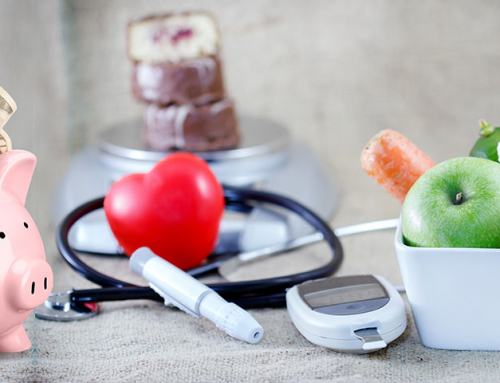As of January 26, 2011, the National Diabetes Fact Sheet released new statistics. In 2007, there were approximately 24 million Americans of all ages with diabetes and 57 million with pre-diabetes (over age 20). These numbers have increased to approximately 26 million Americans of all ages with diabetes and 79 million Americans with pre-diabetes over age 20. This does not account for the children who have pre-diabetes due to their obesity and inactivity.
As the number of people with diabetes rises, the risk of certain diseases, especially heart disease increases as well. How can we lower our risk of heart disease?
Five Simple Steps:
- Increase fruits, vegetables and whole grains. With fewer processed foods you will consume less sodium, more fiber and nutrients.
- Lose weight if you need to. This is easier than you think! If you replace some of the high fat, processed and prepared foods with more wholesome foods, you will fill up more easily and the weight will come off without thinking about it so much! Reducing the amount of sodium will also reduce the amount of fluid you retain that makes you feel bloated.
- Exercise or increase your current activity. There are no excuses! MOVE! Do more than you are doing now. Get yourself in the mindset of eating healthier and doing more activity. Aim for your target heart rate. Do 10 minutes a day if that’s all you have time for. We all have time to brush our teeth and eat and shower, correct?
- Replace some foods that have higher saturated fats (they clog your arteries and increase LDL (lousy) cholesterol and your triglycerides). Both of these fats are typically higher in people with diabetes. Saturated fats are found in whole fat dairy products (milk, cheese, yogurt) and skin on poultry, fat on meat and many creamy sauces, gravies and salad dressings.
- Eat more fish, (lower in cholesterol and saturated fat than poultry and meat) especially those high in omega 3’s like wild salmon and sardines. Omega 3’s are shown to lower triglycerides and LDL cholesterol.
- Relying on fish as the sole method of obtaining Omega 3’s most likely won’t give you the adequate dosage. Therefore, supplements are recommended.
- We need approximately 3,000 mg of Omega 3’s a day. It is difficult to eat that much of it, however, by taking Omega 3 supplements you will be able to get the recommended amounts.
- Be sure the supplement has high levels of DHA and EPA. Those are the substances in Omega 3’s that are responsible for protecting your heart.
- Other supplements to consider with your doctor’s approval are: Magnesium (approximately 350-400 mg) a day may also protect your heart. Eating whole grains, dark leafy vegetables and nuts will increase your intake of magnesium but perhaps not enough.
- Request your magnesium levels to be checked at your next blood test B vitamins (a B-50 complex) will also be heart protective. B vitamins get depleted by some medication, pollution, smoke, alcohol and stress. B vitamins can also be checked at your next blood test.
Take control of your health. It’s a great feeling!
NOTE: Consult your doctor first to make sure my recommendations fit your special health needs.






Leave A Comment